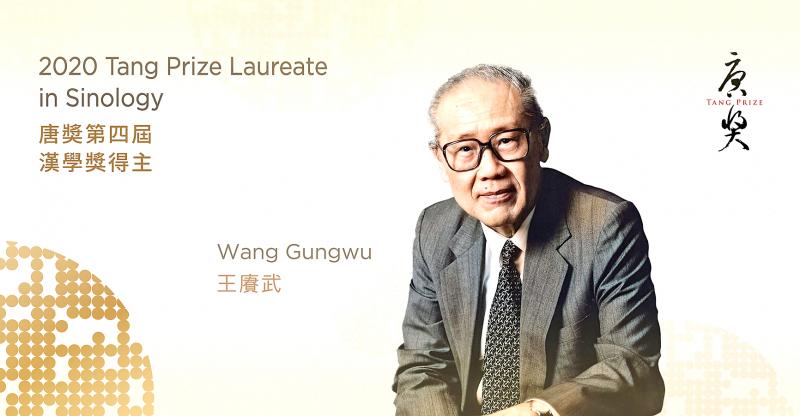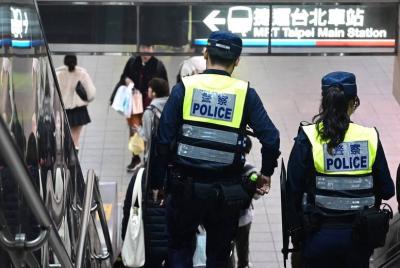Former University of Hong Kong president Wang Gungwu (王賡武), who won this year’s Tang Prize for Sinology, has called for greater responsibility among international Sinologists to facilitate cultural understanding between Chinese-speaking and Western nations.
Sinology has become more diverse due to the rise of China, Wang said at the Tang Prize Master’s Forum on Tuesday last week via videoconferencing from Singapore.
Academic studies could be misused either as a weapon for self-defense or intellectual offense, he said.

Photo courtesy of Tang Prize Foundation
Originally an extension of Oriental studies, which mainly served the needs of European powers, Sinology has evolved to cover subjects such as contemporary China and social sciences, he said.
“A strong and ambitious China is now seen by the global superpower — the US — as a threat to its supremacy,” the 89-year-old said.
Wang, an Australian, in June won the prize for his research on the “Chinese world order,” the Chinese diaspora and its migration experience.
It is important for Sinologists to work together in this sensitive field of study, Wang said, adding that it can be difficult to defend the integrity of the profession when conflict arises.
Academics should capitalize on globalization, as it increases people’s capacity to understand themselves, he said.
Wang enjoys a unique vantage point that affords distinctive insights into Chinese history, as he was born in Indonesia, and educated in British-ruled Malaysia and London, the Tang Prize Foundation said.
Wang — who graduated from what was then the School of Oriental and African Studies at the University of London and pursued an academic career in Malaysia, Australia, Hong Kong and Singapore — is an expert in the interpretation of China’s view on the world, the foundation said.

Beijing could eventually see a full amphibious invasion of Taiwan as the only "prudent" way to bring about unification, the US Department of Defense said in a newly released annual report to Congress. The Pentagon's "Annual Report to Congress: Military and Security Developments Involving the People's Republic of China 2025," was in many ways similar to last year’s report but reorganized the analysis of the options China has to take over Taiwan. Generally, according to the report, Chinese leaders view the People's Liberation Army's (PLA) capabilities for a Taiwan campaign as improving, but they remain uncertain about its readiness to successfully seize

Taiwan is getting a day off on Christmas for the first time in 25 years. The change comes after opposition parties passed a law earlier this year to add or restore five public holidays, including Constitution Day, which falls on today, Dec. 25. The day marks the 1947 adoption of the constitution of the Republic of China, as the government in Taipei is formally known. Back then the Chinese Nationalist Party (KMT) governed China from Nanjing. When the KMT, now an opposition party in Taiwan, passed the legislation on holidays, it said that they would help “commemorate the history of national development.” That

Taiwan has overtaken South Korea this year in per capita income for the first time in 23 years, IMF data showed. Per capita income is a nation’s GDP divided by the total population, used to compare average wealth levels across countries. Taiwan also beat Japan this year on per capita income, after surpassing it for the first time last year, US magazine Newsweek reported yesterday. Across Asia, Taiwan ranked fourth for per capita income at US$37,827 this year due to sustained economic growth, the report said. In the top three spots were Singapore, Macau and Hong Kong, it said. South

Police today said they are stepping up patrols throughout the Taipei MRT system, after a social media user threatened to detonate a bomb at an unspecified station this afternoon. Although they strongly believe the threat to be unsubstantiated, Taipei Metro police and the Railway Police Bureau still said that security and patrols would be heightened through the system. Many copycat messages have been posted since Friday’s stabbing attacks at Taipei Main Station and near Zhongshan MRT Station that left three dead and 11 injured, police said. Last night, a Threads user in a post said they would detonate a bomb on the Taipei